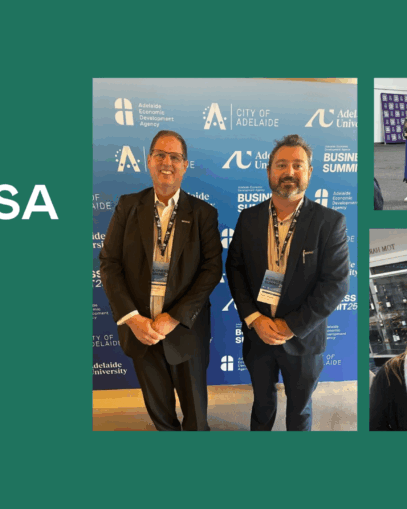Our Lives: Women in the ACT 2021 Report

The COVID-19 global pandemic has impacted all our lives. Globally or locally, in workplaces or at home, in the community or in the family, the cloud of the virus has hung over us for nearly two years. What is less understood, even in a progressive, educated and economically comfortable city like Canberra, is the disparity in the relative impact on different sections of the community. YWCA Canberra’s Our Lives: Women in the ACT 2021 report shines a light on the hidden costs of the pandemic and is essential reading for all Canberrans.
Parbery was privileged to attend the launch of the report at the Kambri Cultural Centre at ANU in December 2021. It opened with an impassioned welcome to country by Ngunnawal Elder, Aunty Violet Sheridan who strongly encouraged the audience to engage with and support community organisations and to have the jab.
The event was led by YWCA Canberra CEO, Frances Crimmins who shared some of the noteworthy elements of the report. Of particular interest was the differing impacts of the pandemic to women and non-binary people through 2020 and 2021. Through the combination of Federal Government support, particularly the temporary increase to Newstart, and other actions by the ACT Government and community, the experience in Canberra through 2020 was generally not as bad as some of the shocks that befell other parts of the country.
However, the 2021 impacts were markedly different. With no financial supplements, and further strains on existing circumstances having built up over twelve months, the report shows ‘how perilously close many are to homelessness, crisis or poverty’. The report details vulnerability due to job joss, increased incidence of domestic or family violence, the pressure of increased housing and living costs, all compounded through the loss of social networks and connectivity through lockdown.
According to the YWCA Canberra, a combination of life factors is of critical impact to vulnerability for women and non-binary people. For example, low income and losing work or being aged 45 or older and renting. Of most concern is the number of women increasingly ‘just one pay away’ from crisis.
A highly engaging panel considered the complexities of the findings and explored possible actions. Jo Chivers, Dr Hayley Boxall, Professor Meredith Edwards AM and Celestina Emmy Rabi brought diverse perspectives and were generous in sharing both their lived and professional experiences to illuminate the findings of the study.
Celestina, a young South Sudanese immigrant, highlighted the importance of supporting community organisations that assist women and non-binary people in need, such as YWCA Canberra and the ACT Multicultural Hub. She was generous in sharing her experiences as a young, newly arrived person in Canberra and the difficulties in finding work and housing.
Jo, a Palawa woman from Tasmania and a member of the ACT Aboriginal and Torres Strait Islander Elected Body, shared her insights as a professional women who is also a single parent. Jo challenged our understanding of who might be at risk as she reflected on her own experience as a career-focused public servant and her difficulties in securing housing.
Hayley and Meredith, who have decades of combined research experience in areas covering social and educational reform, as well as domestic and family violence, emphasised the long-term nature of short-term impacts.
‘Women have mortgaged their futures. What are we going to do in 20 to 30 years’ time to say thanks for this sacrifice?’ Hayley commented.
Specialist attention and acceptance of responsibility from various levels of government were seen as crucial to addressing the impacts of the pandemic on women.
The Our Lives report is a timely addition to our community as it grapples with the impacts of the social and economic disruption of the past two years. While the path forward has great opportunity for leadership from women in our community, the ramifications for those paying the greatest costs during this global crisis require urgent and ongoing attention.
Brendan Egan is a Senior Manager at Parbery. He is passionate about developing better social outcomes for the community and has worked extensively across primary health, aged care, community services, social housing, arts and Aboriginal and Torres Strait Islander policy.
Photo by Arya Pratama on Unsplash


